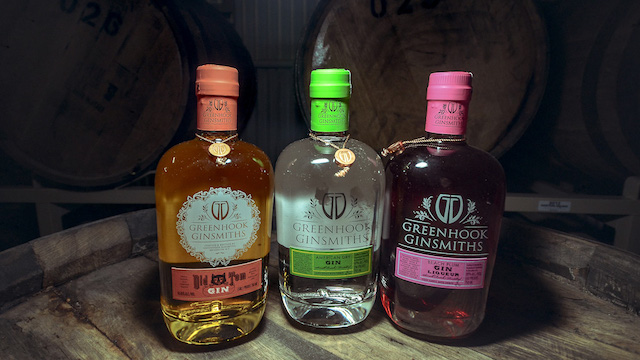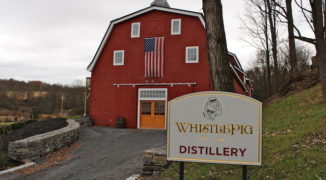When the economy implodes and your Wall Street career is looking less and less promising, what’s the next logical step? For Steven DeAngelo, that step was gin. Like many modern-day small business owners, DeAngelo started thinking about making the switch from corporate life to entrepreneurship when the 2008 recession hit. Now, he’s the man behind New York’s Greenhook Ginsmiths, a small-batch gin distillery in Greenpoint, Brooklyn with three full-time employees, a half-dozen part-timers and three highly praised gins in its lineup.
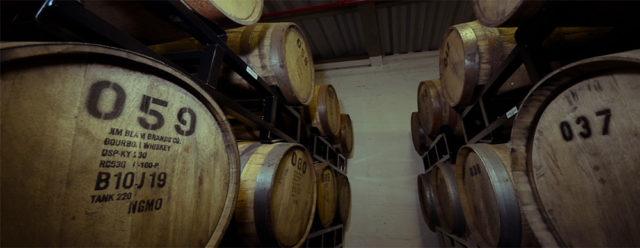 The gin is distilled in a custom-made copper pot still that uses a vacuum to remove air pressure from the still while the gin is being processed. All photos courtesy of Gustavo Ponce.
The gin is distilled in a custom-made copper pot still that uses a vacuum to remove air pressure from the still while the gin is being processed. All photos courtesy of Gustavo Ponce.
“I really wanted to change careers — I was unhappy previously,” Steven says. “It was a really daunting task, getting a distillery off the ground, but it’s also been very satisfying.” The gins, which have been met with a great deal of critical acclaim, are made using vacuum distillation: a high-tech method of low-pressure, low-temperature distilling that preserves the delicate, temperamental flavors of botanicals.
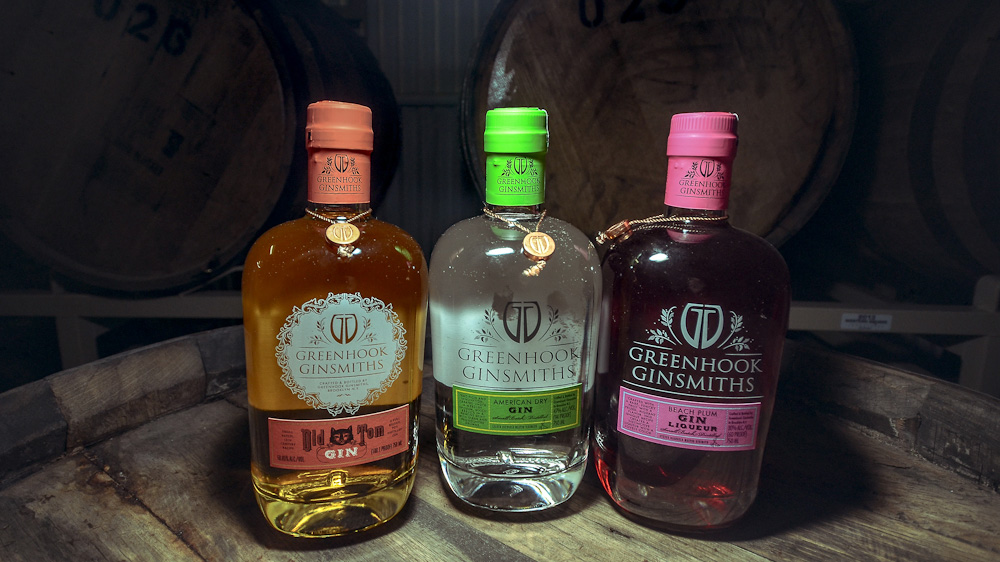 Greenhook Ginsmiths produce three award-winning gins: Old Tom Gin, American Dry Gin and Beach Plum Gin Liqueur.
Greenhook Ginsmiths produce three award-winning gins: Old Tom Gin, American Dry Gin and Beach Plum Gin Liqueur.
The distillery has three gins in its lineup. American Dry Gin is the brand’s flagship, made with organic New York wheat and botanicals like Tuscan juniper, chamomile, elderflower and Ceylon cinnamon. Greenhook’s Old Tom hearkens back to the 18th century, a bridge between Dutch Genever and London dry gin that’s aged for a year in bourbon barrels and finished in sherry casks. Finally, the Beach Plum Gin Liqueur is a shout-out to sloe gin, Long Island-style: since sloe berries aren’t native to the U.S., Greenhook uses Long Island beach plums instead. The whole fruits are soaked in Greenhook’s American Dry (and a touch of sugar) for seven months, resulting in a fruit-forward liqueur that’s captured the attention of everyone from Wine Enthusiast to the New York Times. (Steven describes it as “an American homage to sloe gin,” adding that it’s garnered a fiercely loyal cult following.)
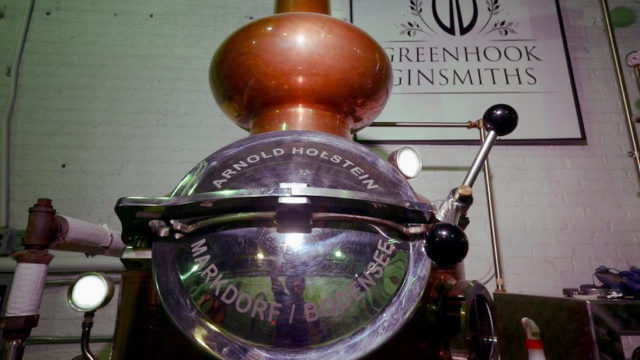 The custom-made copper still makes a statement in the Greenhook Ginsmiths distillery.
The custom-made copper still makes a statement in the Greenhook Ginsmiths distillery.
While many small-batch spirits distilleries span both gin and whiskey production, Greenhook is a rare purist: one of the few that specializes in gin and only gin. “I’m a big believer in focusing on one thing and doing it right.” Of course, it helps when that one thing just happens to be your favorite spirit, as in Steven’s case—he’s been a gin aficionado from the time he could drink, which makes the whole thing seem a little less like a job. “The thing that’s crazy is, I blink my eyes and four years have gone by,” he says. “The day really goes by quickly. In my old career, from the very beginning of the morning to the very end of the night, all that time in between I’d just be staring at the clock.”
Now, he has his sights set on something markedly different: “We really want to be the number one non-commercial gin in the country,” he says. To get there, Greenhook is laser-focused on spreading the good word about its three flagship gins, rather than tinkering with experiments or adding lots of new products to the lineup (aside from the occasional one-off tasting room treat). rnBetween getting nods from the Times and having Forbes describe the product as “sensational,” there’s never a dull moment for Greenhook. But, in Steven’s words, every single day brings new excitement. “When you get into restaurants and bars, or see yourself on menus at world-class quality restaurants, that’s very fulfilling,” he says.
Of course, it’ll be interesting to see how things shake out for Greenhook and its peers, as more and more small-batch gin purveyors seem to pop up each year like a boozy game of whack-a-mole. “We’re getting to the point of relative saturation, especially in the gin market,” Steven says. “I think some of them may have to go out of business, some of them will have to stop making gin. The market just can’t sustain that many.” In the meantime, though, if that means filling our shelves with well-made gins like these, it’s a pretty good problem to have.
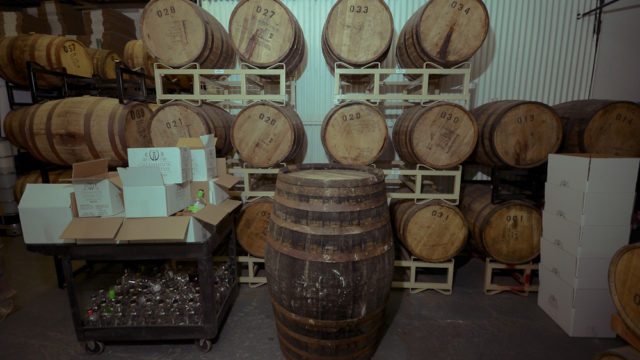 Much of the distillery’s space is filled by gin that is aging in bourbon and sherry casks, as well as the bottles and boxes required of their packaging process.
Much of the distillery’s space is filled by gin that is aging in bourbon and sherry casks, as well as the bottles and boxes required of their packaging process.


